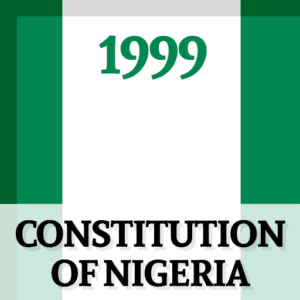
Illicit Financial Flows: Remodeling the unbalanced structures of Nigeria’s taxation system
Taxation remains one crucial subject on the radar of national economic discourse. The discourse on the commonwealth of nations which is apparently a parent subject to the former, has largely been one of elaborate perusal in perspective, particularly when the matter of generation of revenue and distribution of same comes into bear. The subject of ‘the commonwealth’ has over the years dominated discourse in political economy of nations, particularly since industrialisation began to take course.
One of the instruments, which over the years, has been developed to build and channel the distribution of resources within a reflective system of recycling, is taxation. Countries of the world advancing with appreciable growth and development in the light of a virile economy, have their taxation system well structured with firm lines of relevance that bear mutual connectivity to their macro-economy. Well established structures of operations that guide the workings of the economy along these lines of effective taxation system, have been instrumental in building these economies in the light of reflective development in appreciable balanced setting that hardly leaves neither the nation as a whole or the individual cheated.
Understanding the underlining significance of a balanced, effective, virile and responsive taxation system is crucial for economic growth and development to take course. This informs why developed Countries of the world, have over the years mustered energy towards building a virile taxation system. The consistency towards modifying these systems to respond appropriately to the demands of new realities have kept their economies running on the lane of virility without suffering huge blows. The narrative in Nigeria appears to be a departure from this reality. The prevailing taxation system is one which has been argued to be in the wrong radar from the standard which is arguably believed to be effective enough to work in line with the parameters that are required to boost the expected economic growth and development. As several parameters-structural deficiencies-continue to vitiate and render the system inconsistent with the required standard to vitalise the economy, the manifest outcomes in the face of present realities pose huge losses to the Country’s economy. If any meaningful change in narrative would therefore be recorded, a remodelling is indisputably sine qua non.
One phenomenon which is a saddened offshoot of structural defects from the Country’s taxation system is the phenomenon of capital flight and Illicit Financial Flows (IFF). While the Government has not turned a forceful move towards this angle in efforts to addressing illicit operations in the Country, the menace has continued to cheat the Country’s economy with direct and indirect links to socio-political formations in the Country.
The Independent Corrupt Practices and Other Related Offences Commission (ICPC) had last Friday divulged that Nigeria accounts for 20 per cent or 10 billion dollars (N3.8 trillion) of the estimated $50 billion dollars that Africa loses to Illicit Financial Flows (IFFs). According to a statement by ICPC spokesperson, Mrs. Azuka Ogugua, the Chairman, ICPC, Prof. Bolaji Owasanoye, who made the disclosure during a virtual meeting to review a report on IFFs in relation to tax, was quoted: “The African Union Illicit Financial Flow Report estimated that Africa is losing nearly 50 billion dollars through profit shifting by multinational corporations and about 20 per cent of this figure is from Nigeria alone.” Accordingly, “Risk-based approach, that is: monitoring and audit; due process in tax collection; structured tax amnesty framework skewed in public interest; data privacy; timely resolution of audits and payment of tax refunds and intelligence sharing among revenue generating, regulatory and law enforcement agencies,” have been identified as significant measures which are rightly needed to check against the prevailing lacunas.
The necessity to address the underlining loopholes giving ample room for capital flight and other illicit financial flows to cheat on the Country requires creative approach to close the gaps of leakages which for years have left illicit ambiance open for easy operation by manipulation and evasion. Building structures of responsiveness to effectively deploy the instrumentality of taxation mechanisms that proactively check against illicit financial flows is crucial to change the prevailing narrative. It is essential that strategic measures be employed towards improving awareness on the operating techniques of IFFs, particularly as it concerns taxation.
This is critically essential to expand the Country’s tax base and as a result improve revenue generation, crucial to execute capital projects for economic development. The necessity of developing systemic models through policy reforms that would create structures that bridge the gap for capital flights is sine qua non. In this line, investing prudently in building virile human capacity to stamp out illicit financial flows becomes important. Capacity building in areas of technology management, solution architects and astute relationship management is among others, key to developing a responsive system against the menace cheating hard on the Nigerian economy by robbing her of accruals that should significantly go into development courses.
It is saddening that the wide gaps of systemic leakages characterised with weak regulatory framework, opaque financial structures and poor capacity, have left the Government at a state of want as huge resources accruable to the coffers for development are unfortunately sapped through the prevailing porous financial system which defines public finance and revenue generation in the Country.
The poorly structured system of taxation in the Country has left an unreasonable sensation of dysfunction which is consequential to a no-clear-cut policy direction syndrome. The need for structural reforms to question existing order and address the status quo for a more enlightened and sophisticated system of taxation which would be fair to public interest is sine qua non. The prevailing system which is largely beclouded and enmeshed with inconsistencies and loopholes are wrong keystrokes for economic growth. It is high time the Government worked with all relevant stakeholders on the necessity to infuse reforming working patterns into the Country’s taxation system. This is significant to give new breath of operating workability which is fair in striking prudent balance in raising the bar for conducive business environment, bearing appreciable returns back into the economy to drive capital projects for growth and development. The prevailing leakages are deficiencies that should be redressed strategically with systemic overhaul of defective parameters which have left exploitable gaps for capital flight and other illicit financial flows.



